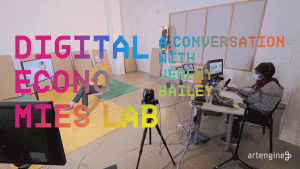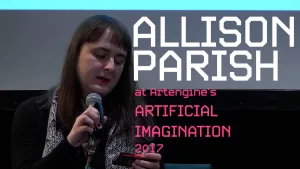Madeline Ashby, a noted science fiction writer and futurist, delivered a thought-provoking talk at Artengine’s Future Cities Forum, focusing on the future of cities and their evolving roles in society. She began by emphasizing the importance of imagination over visual aids, setting the stage for a discussion about possibilities yet to be envisioned. Ashby introduced her work, including her novel “Company Town,” which imagines a city built around an oil rig, highlighting her unique approach to envisioning urban futures.
Ashby skillfully used her platform to underscore the significance of acknowledging the historical and ongoing human connections to land, particularly the traditional, unceded territories, bringing attention to deeper definitions of humanity—themes often explored in science fiction. She shared insights from her experiences writing science fiction prototypes for various organizations, where she speculates on future uses of technology and urban development, blending her narrative talents with strategic foresight.
Throughout her talk, Ashby proposed several innovative ideas for urban development, emphasizing the necessity of accessible public transit, affordable housing for students, and smart, sustainable housing that accommodates families. She challenged the audience to consider not just “smart” cities in terms of technology but also “wise” cities that cultivate gentleness, compassion, and justice—qualities essential for sustaining livable urban environments for future generations. This call to rethink urban spaces underscored her belief in the power of community and the potential of cities to adapt and thrive amid changing societal needs.

